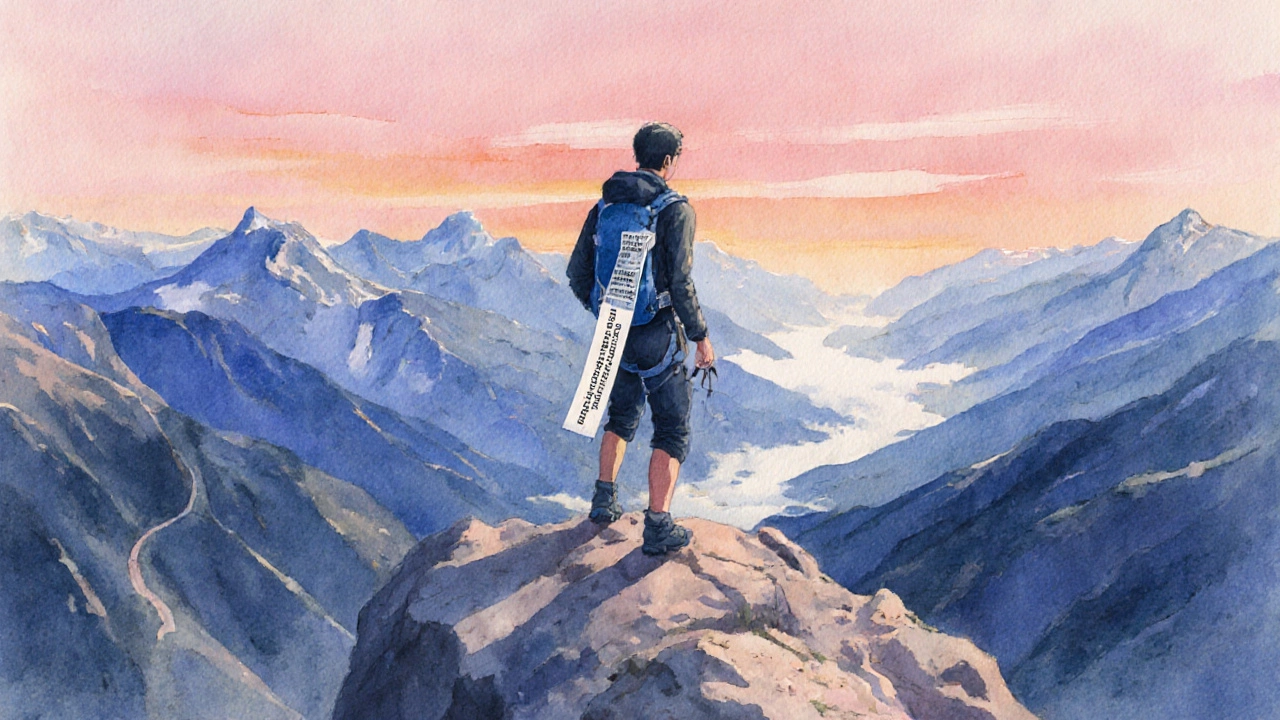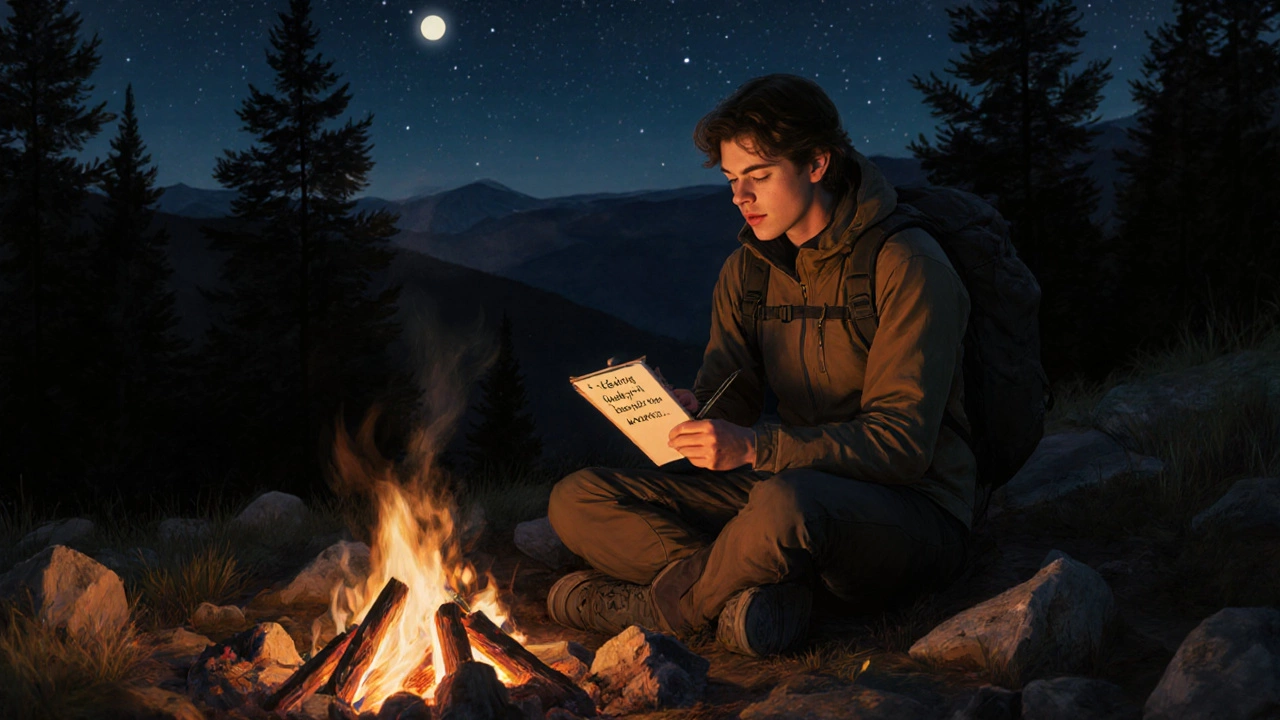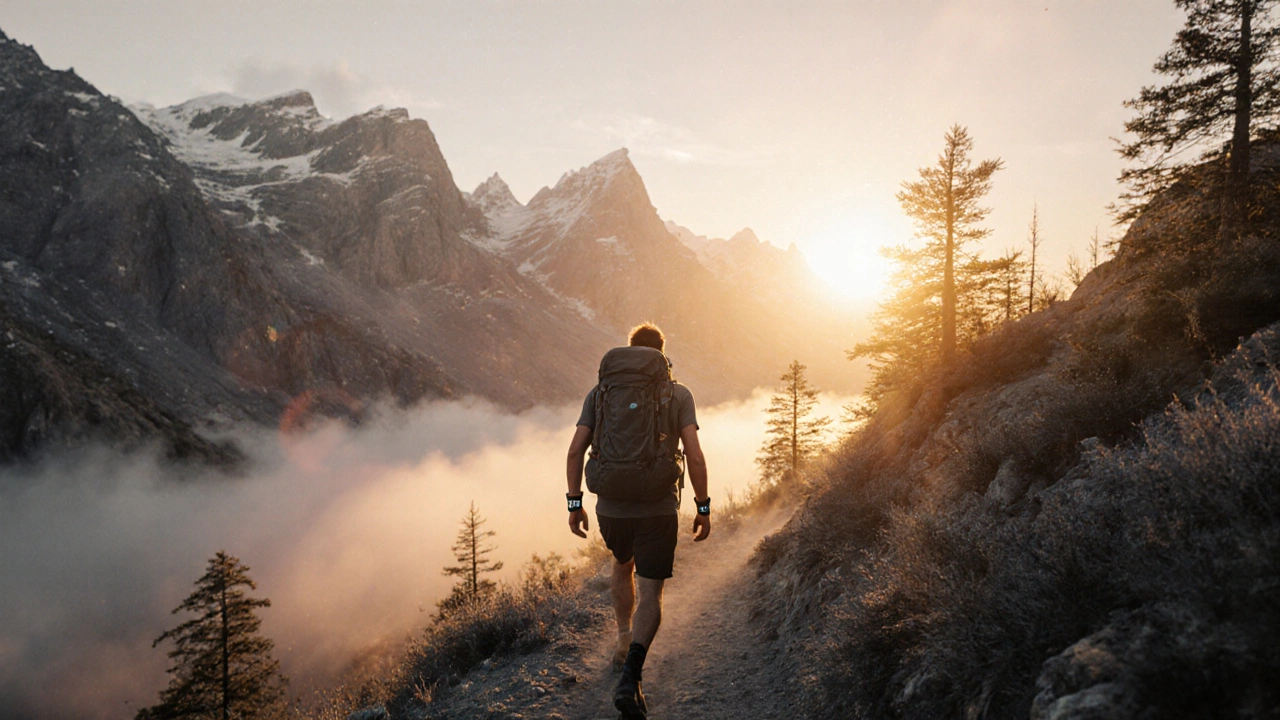Trekking Quote Selector
All Trekking Quotes
When you set out for a long hike, a well‑chosen line of text can turn a tough ascent into a moment of clarity. A trekking quote works like a mental compass-pointing you toward perseverance, wonder, or simple joy when the trail gets steep. Below you’ll find why quotes matter on the trail, how to spot the ones that truly lift you, and a ready‑made list of ten favorites you can start using today.
Why a Quote Matters on a Long Walk
Trekking is an outdoor activity that challenges both body and mind. It often pushes you into zones where fatigue, weather, and altitude test your resolve. A concise, resonant phrase can act as a mental reset button, reminding you why you started and what you hope to see at the summit.
Studies from sports psychology (e.g., a 2023 field study of Himalayan trekkers) show that participants who repeat a personal mantra report 15% lower perceived exertion. In practical terms, a good quote isn’t just fluff-it can shave minutes off your recovery time and keep morale high.
What Makes a Quote ‘Nice’ for Trekking?
- Relevance: The wording should echo the experience of walking, climbing, or pausing in nature.
- Conciseness: A line under 20words fits easily on a wristband, notebook, or phone lock screen.
- Positive Tone: Even if the quote acknowledges struggle, it should end on a hopeful note.
- Imagery: References to mountains, valleys, sunrise, or paths create a vivid mental picture.
- Timelessness: Avoid trendy slang that may feel dated on a future trek.
When a quote ticks these boxes, it becomes a reliable mental tool, not just another Instagram caption.

Top 10 Trekking Quotes and When to Use Them
Below is a curated list of ten quotes that have proven popular among hikers, mountaineers, and backpackers worldwide. Each entry includes the author (or source), a brief context, and a tip on the best moment to recall it.
| Quote | Author / Source | Core Theme | Ideal Trail Moment |
|---|---|---|---|
| "The best view comes after the hardest climb." | Anonymous | Reward after effort | Approaching a summit |
| "Take only pictures, leave only footprints." | John Muir (adapted) | Environmental respect | When passing a pristine spot |
| "In every walk with nature, one receives far more than he seeks." | John Muir | Mindful immersion | Early morning mist |
| "It’s not the mountain we conquer, but ourselves." | Sir Edmund Hillary | Self‑discovery | During a steep ascent |
| "Adventure is worthwhile in itself." | Alfred North Whitehead | Pure enjoyment | Mid‑trail stretch when fatigue sets in |
| "Climb the mountain not so the world can see you, but so you can see the world." | David McCullough Jr. | Perspective shift | Reaching a ridge |
| "Every mountain top is within reach if you just keep climbing." | Barry Finlay | Persistence | When legs feel heavy |
| "Nature does not hurry, yet everything is accomplished." | LaoTzu | Patience | Walking through a valley |
| "The journey of a thousand miles begins with a single step." | LaoTzu | Starting point | First day of a trek |
| "Footprints on the earth are more lasting than footprints in the sand." | Anonymous | Legacy | Leaving a trailhead |
How to Use a Quote During Your Trek
Embedding a quote into your routine is easier than you might think. Here are three practical ways to keep it top‑of‑mind:
- Wear it: Print the line on a silicone wristband or a waterproof patch for your pack. Visual cues trigger recall without effort.
- Record it: Add the quote to a voice memo that plays automatically at a set interval (e.g., every hour) on your phone.
- Write it down: Jot the phrase in a small pocket notebook and read it before each major ascent.
Whichever method you choose, make sure the text is legible at a glance. The goal is instantaneous mental reinforcement, not a literary analysis session.
Crafting Your Own Trekking Quote
Personalized quotes often resonate stronger because they echo your own motivations. Follow this simple formula:
- Action verb + nature element + desired feeling
Example: “Climb the ridge and feel limitless.” - Keep the rhythm steady-most effective lines follow a 5‑7‑5 syllable pattern, reminiscent of a haiku.
- Test it out: say the line aloud while walking on a flat path. If it feels natural, you’ve got a winner.
Once you have a custom line, treat it like a personal mantra. Repeat it silently during tough sections; let it replace negative thoughts.

Common Pitfalls and How to Avoid Them
Even a great quote can backfire if misused. Watch out for these mistakes:
- Over‑reliance: A quote is a boost, not a substitute for proper planning. Carry maps, water, and gear regardless of motivation.
- Inappropriate tone: Avoid overly grim or sarcastic lines on a serene trek; they clash with the environment.
- Lengthy prose: Long passages are hard to recall under strain. Trim any extra adjectives.
By staying mindful of these traps, you keep the quote as a clean, effective tool.
Quick Reference Checklist for Your Next Trek
- Choose ONE quote that matches your upcoming terrain.
- Print or note it in a durable format.
- Link the quote to a specific trail moment (e.g., summit, steep climb).
- Practice saying it aloud before departure.
- Review the quote after the trek to gauge impact.
Keep this list on your packing sheet; crossing it off ensures the mental boost is ready when you need it.
Frequently Asked Questions
Can I use any famous quote, or should I pick one I wrote myself?
Both work, but a self‑written line often feels more personal. Famous quotes bring credibility and shared wisdom, while original mantras tap directly into your own goals.
Is it okay to repeat a quote aloud while hiking?
Absolutely. Whispering or speaking it softly can help regulate breathing and focus attention, much like a guided meditation.
What if my quote feels cheesy after a few hikes?
Switch it out! The power of a quote lies in its freshness. Rotate quotes every few trips to keep the impact strong.
Do quotes help with altitude sickness?
They don’t cure the physiological effects, but a calming mantra can reduce anxiety, which sometimes worsens altitude symptoms.
How should I store a waterproof quote on my pack?
Laminate the text on a thin plastic sheet and attach it with a Velcro strap near your chest harness. It stays visible but doesn’t add bulk.



